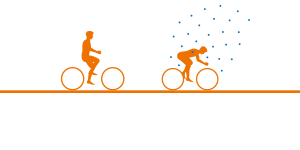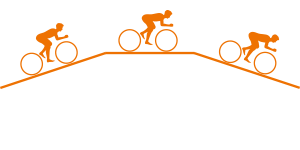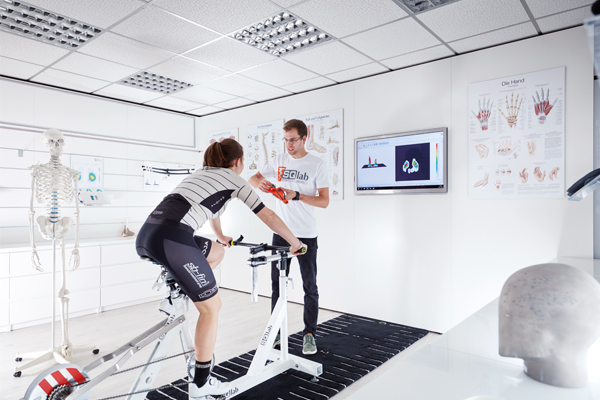MaxContact®
A continuously changing position on the bike is a part of cycling as much as pedaling. A slight change of the upper body position or the raising or lowering of the pelvis changes the contact points and prevents a one sided load. A commuter for example, might choose a very upright position for a good view in traffic but might choose a more aggressive forward bad wheather position when riding in rain or up a steep hill. An accomplished mountain biker is characterized by an active riding style as the sitting position is adapted to the terrain and the center of mass moves forwards or backwards depending on how steep the terrain is.
What does this mean with reference to the SQlab MaxContact® concept?
The physical law for calculating pressure is:
Pressure = Force/ Area |
Calculating pressure at the saddle:
Saddle load = Body weight / Sitting Area |
More safety and comfort while dynamic sitting
The area of the saddle nose should be as large as possible but as narrow as necessary. So, how can a saddle nose be narrow enough to not interfere with pedaling, yet provide maximum contact surface in order to provide relief of pressure when the upper body is shifted forward?
The SQlab MaxContact® concept has a saddle nose which is both lowered and also very flat. Thanks to this simple trick the nose provides a larger contact surface area than conventional saddles for those cases when you have to shift your upper body forward creating increased pressure.







.contact)